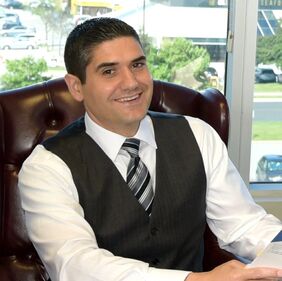|
In the recent case of Moustakis v. Agbuya (October 17, 2023), the Superior Court of Justice in Ontario delivered an important ruling on the admissibility of expert evidence in personal injury cases. This decision, articulated by the Honourable Justice L. Merritt, underscores the necessity for impartial and relevant expert testimony, reinforcing the Mohan test and the gatekeeper role of the court in ensuring that expert evidence contributes constructively to the judicial process. This ruling has significant implications for personal injury litigation, particularly in addressing the frequent use of biased medical experts by insurance companies.
Case Overview The case involves the plaintiff, Kyriaki Moustakis, who alleged injuries from a motor vehicle accident on January 9, 2016. The defense sought to introduce Dr. Michael Ford, an orthopedic surgeon, as an expert witness to testify on chronic pain and somatic symptom disorder. However, the plaintiff challenged Dr. Ford’s impartiality and relevance, arguing that his testimony was biased and exceeded his expertise. The Mohan Test and the Gatekeeper Role Justice Merritt’s ruling began with an application of the Mohan test, which sets out four criteria for the admissibility of expert evidence:
Key Findings and Rejection of Dr. Michael Ford's Opinions Justice Merritt found that Dr. Ford’s testimony did not meet the necessary criteria for several reasons:
Legal Precedents and Implications The decision in Moustakis v. Agbuya aligns with the principles established in White Burgess, which underscores the importance of expert independence and impartiality. The ruling reinforces that experts must not only possess the necessary qualifications but must also provide evidence that aids the court without bias or advocacy. The Mohan Test The Mohan test, originating from the Supreme Court of Canada's decision in R. v. Mohan, remains the cornerstone for determining the admissibility of expert evidence. The four-part test includes:
The Cost-Benefit Analysis Beyond the Mohan test, the court must conduct a cost-benefit analysis to weigh the probative value of the evidence against its potential prejudicial impact. This involves:
Expert Independence and the Role of Advocacy A critical aspect of Justice Merritt’s ruling was the emphasis on expert independence. The court reiterated that an expert’s primary duty is to the court, not to the party that retains them. This principle is embedded in the legal framework to prevent experts from becoming advocates for one side, thus maintaining the integrity of the judicial process. The White Burgess decision is particularly instructive in understanding the boundaries of expert testimony. The Supreme Court of Canada in this case emphasized that expert evidence must be impartial, independent, and unbiased. The expert must objectively assist the court, rather than advocating for a particular outcome. This case highlighted situations where an expert’s evidence might be excluded, such as when there is a direct financial interest, a close relationship with a party, or exposure to professional liability contingent on the case's outcome. The Reality of Insurance Medical Examinations At Iacobelli Law Firm, we have extensive experience representing injured parties where insurance companies routinely rely on experts that are biased. Many experts hired by insurance companies to defend and defeat personal injury claims earn more money authoring reports for insurance companies than actually practicing medicine. This economic dependence can lead to biased opinions, which was a central issue in Moustakis v. Agbuya. Insurance Medical Examinations: A Closer Look Insurance medical examinations (IMEs) are often portrayed as impartial evaluations. However, these assessments are anything but independent. Insurance companies strategically select doctors for post-accident injuries assessments, aiming to minimize payouts. This practice is explored in our YouTube video on insurance medical examinations, where we delve into the hidden truth behind these evaluations and provide tips on how to navigate them successfully. Here are some key points from the video:
Implications for Legal Practitioners The Moustakis v. Agbuya ruling has significant implications for legal practitioners, especially in personal injury litigation. It underscores the necessity of scrutinizing the qualifications and impartiality of expert witnesses. Legal teams must ensure that their experts are not only well-qualified but also capable of providing unbiased, relevant, and reliable testimony. For plaintiffs, it is important reminder to challenge biased experts hired on behalf of insurance companies. Best Practices for Admissibility of Expert Evidence To enhance the admissibility of expert evidence, practitioners should consider the following best practices:
The decision in Moustakis v. Agbuya is a pivotal moment in personal injury litigation, particularly in curbing biased defense medical opinions. By strictly adhering to the Mohan test and emphasizing the gatekeeping role of the court, this ruling helps ensure that expert evidence presented in court is both fair and beneficial. For legal practitioners, this decision underscores the critical importance of scrutinizing the qualifications and impartiality of expert witnesses to maintain the balance and fairness of judicial proceedings. At Iacobelli Law Firm, we remain committed to providing expert analysis and support in navigating complex personal injury litigation. To learn more about navigating insurance medical examinations, we invite you to watch our YouTube video on the subject. We are here to provide insights and guidancein the ever-evolving landscape of personal injury law. Andrew Iacobelli is an experienced personal injury lawyer who established Iacobelli Law Firm with offices located in Ontario, Canada and Florida, U.S.A. Andrew restricts his practice to the representation of personal injury victims in claims involving serious injuries, Catastrophic Injuries, and wrongful death in Canada and the United States. Andrew is a lifetime member of the Million Dollar Advocates Forum, and the author of "Are You a Canadian Injured in the United States? Claim the Damages and Insurance Coverage the Right Way". Andrew also hosts a popular podcast and YouTube channel on the subject of personal injury law and the rights of injury victims. Disclaimer: This blog is informational only and not a substitute for legal advice. Every case is unique, and you should always consult a lawyer about your specific situation.
0 Comments

If you are advancing an injury claim in Ontario, your insurance company or the insurance company for the at-fault-party will probably demand that you attend anIndependent Medical Examination also referred to as the IME. You will have no real choice here. If you decide not to attend the IME, the insurance company will cut-off benefits on the basis that you have failed to participate in the examination. If you do attend, there is high likelihood that the assessing physician will write a report in favour of the insurance company, which will then support a denial of your claim. You might be thinking that an impartial doctor should be involved to help resolve disputes between the victims and insurance companies. You would be right in such an assessment - the problem, however, is that the physicians conducting the IME are not independent and certainly not impartial.
The term for the assessment is designed to mislead and give the impression that the victims are to be examined by an independent physician or medical provider that will give an impartial and fair assessment of injuries. In reality, however, there is absolutely nothing independent about the IME or the physician conducting the IME. In fact, the physician chosen to assess you is typically handpicked by the insurance company and is paid handsomely by the insurance company. Most of these physicians perform the IME on contract for an assessment company that is in business to do IME work on behalf of the insurance industry. These are for-profit businesses that specifically service the large insurance companies. The physicians earn thousands of dollars to regularly assess accident victims and write reports for the insurance company. As an Ontario personal injury lawyer, I regularly see the same doctors time and again doing assessments and reports on behalf of the insurance companies in Ontario. Time and again these doctors write predictable reports entirely favourable to the insurance company. Routinely, the insurance companies deny claims on the basis of the medical opinion from their handpicked doctor, all while entirely ignoring the opinions of the involved treating doctors, such as family doctors and specialists. The IME physician will generally only see the victim for at-most one hour, and never establish an physician-patient relationship. Most of the assessment is conducted by way of an interview. In the end, the IME doctor will likely disagree with opinions of specialists and family doctors that have been treating the victim for months and sometimes years. It is truly mind boggling that an insurance company is allowed to entirely ignore the opinion of the front-line doctors who are actually involved in the patient's care and, instead, defer to the opinions of a doctor of their choosing. It happens every single day in Ontario. If your insurance company is asking you to attend an IME, you should have an experienced injury lawyer on your side. For a FREE CONSULTATION call us toll free at 1-866-234-6093 or complete our online contact form here.
Connect with Andrew Iacobelli on Google+
|
Author:
|
- HOME
-
Personal Injury
- Catastrophic Injury >
- Wrongful Death >
- Motor Vehicle Accidents >
- Premises Liability
- Slip and Fall Accidents
- Nursing Home Negligence
- Child and Birth Injuries
- Bouncer Assault Injury
- Medical Malpractice
- Defective Products
- Watercraft and Boating Accidents
- Dog Bites/Animal Attacks
- View All Practice Areas
- Disability Law
- Business Litigation
- Our Team
-
Resources
- Video Gallery
- Media and Speaking Requests
- How a Car Accident Lawyer Can Protect Your Rights
- Frequently Asked Questions >
- Fees
- Do I Have A Case?
- How to Start a Personal Injury Claim
- Personal Injury Claims
- Accident Benefit Forms
- Ontario Spinal Cord Injury Resources
- Ontario Brain Injury Resources
- Support Groups
- Physiotherapy and Chiropractors
- Links
- Contact
- HOME
-
Personal Injury
- Catastrophic Injury >
- Wrongful Death >
- Motor Vehicle Accidents >
- Premises Liability
- Slip and Fall Accidents
- Nursing Home Negligence
- Child and Birth Injuries
- Bouncer Assault Injury
- Medical Malpractice
- Defective Products
- Watercraft and Boating Accidents
- Dog Bites/Animal Attacks
- View All Practice Areas
- Disability Law
- Business Litigation
- Our Team
-
Resources
- Video Gallery
- Media and Speaking Requests
- How a Car Accident Lawyer Can Protect Your Rights
- Frequently Asked Questions >
- Fees
- Do I Have A Case?
- How to Start a Personal Injury Claim
- Personal Injury Claims
- Accident Benefit Forms
- Ontario Spinal Cord Injury Resources
- Ontario Brain Injury Resources
- Support Groups
- Physiotherapy and Chiropractors
- Links
- Contact
|
You are currently visiting our Canada site, to visit our USA site click here.
|
Main Law Office and Mailing Address15 Wertheim Court, Suite 303
Richmond Hill, Ontario L4B 3H7 |
Toronto1200 Bay Street, Suite 202
Toronto, Ontario, M5R 2A5 Vaughan10877 Keele Street
Vaughan, Ontario L6A 0K6 |
FREE CONSULTATION |
Copyright © 2012 - 2024 Iacobelli Law Firm All rights reserved. | 561-625-6133 | 416-900-1070 | Toll Free: 1-877-742-2529
This site uses content and information prepared by AI including technology from Gemini and ChatGPT technology from OpenAI.
You should always consult with a lawyer about specific legal questions you may have.
You should always consult with a lawyer about specific legal questions you may have.
Iacobelli Law Firm represents victims of serious personal injury throughout Ontario Toronto | York Region | Richmond Hill | Aurora | Mississauga | Scarborough | Vaughan | North York | Stouffville | Keswick | Kitchener | Barrie | London | Brampton | Windsor | Markham | Guelph | Oshawa | York Region | Kingston | Markham | Sudbury | Vaughan | Newmarket | King City | Peterborough | King City | Whitby | Sarnia | Orangeville | Niagara Falls



 RSS Feed
RSS Feed






